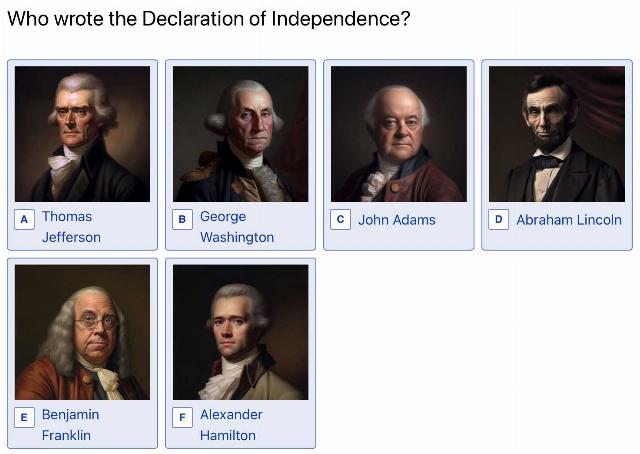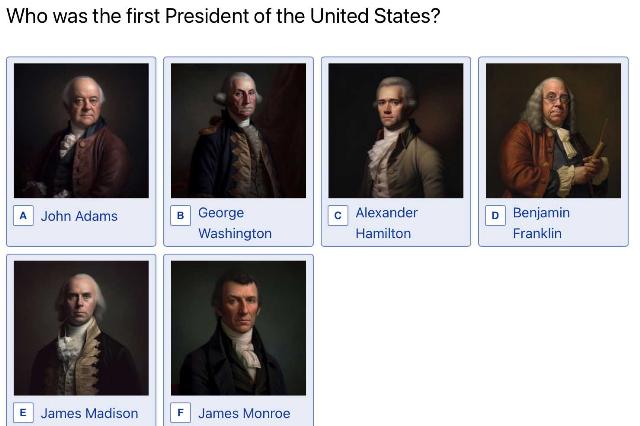An alarming lack of citizenship
A common joke among college professors teaching freshmen is: “I know the first name of your high school history teacher: ‘coach.’” I discovered that reality independently during my high school days. Every one of my history teachers was a coach, and fortunately, none of them phoned it in, but I graduated more than a half-century ago. That reality was reinforced when I told my college registrar I wanted to major in history and minor in English and was told that was impossible because unless I had at least a minor in coaching, no one would hire me to teach history.
Certainly, not every history teacher/coach is incompetent or uninterested in teaching history. During my teaching career, we had two coach/English teachers one year. They were often absent and when present, mostly showed videos unrelated to English. I suspect they’d have been no better at teaching history. It also appears there’s more to the story:
A sobering statistic recently revealed that only 36 percent of American adults could pass the U.S. citizenship test, a foundational exam designed to measure basic knowledge of American history, government, and civic principles. This alarming finding—reported by NBC News—underscores a growing crisis in civic education, where even the simplest questions about our nation’s past and governance can’t be answered by a majority of our country.
Equally disconcerting are the results among younger generations. A 2023 report from The Daily Signal highlighted that a mere three percent of high school students can pass the citizenship exam. These students, soon to become voting-age adults, lack a basic understanding of our Constitution, key historical events, and fundamental principles of democracy required to be informed citizens.
Yow. Surely the test must be really hard?
The U.S. citizenship test comprises 100 questions, ranging from “What is the supreme law of the land?” to “Who wrote the Declaration of Independence?” Immigrants applying for citizenship must correctly answer six out of ten randomly selected questions, a pass rate of 60 percent. Yet, surveys repeatedly show that native-born Americans perform worse than foreign-born residents seeking citizenship through naturalization.
Foreigners seeking to become American citizens must also demonstrate basic English proficiency and pass the test. Prager U provides example test questions:

Graphic: Prager U
Here’s another demanding question:

Graphic: Prager U
Other questions ask which branch of government makes federal laws and which freedoms are guaranteed by the First Amendment.
What’s causing this death of knowledge about what makes America American? Poor teaching is only a part of the problem. A focus on mandatory, high stakes testing deprives kids of irreplaceable hours of class time as they focus on the very narrow items tested. All too often, history has been coopted by DEI, CRT and wokeness in general, which focus not on the facts, personalities, acts and accomplishments of the men and women who made America, but on anti-American propaganda. It’s hard to care much about a country if all one is taught is how evil those who made and who now inhabit it were and are.
Among younger generations, the situation is even more dire. High school students, who should be learning the basics of American history and civics, are failing at staggering rates. According to The Daily Signal, the majority of high schoolers couldn’t identify what the Constitution does, the reasons behind the Revolutionary War, or the functions of government institutions. If these trends persist, future generations may lack the knowledge necessary to engage meaningfully in the democratic process.
They already do. As I’ve discovered, far too any Americans don’t understand the difference between “our democracy,” which is not at all our system of government, and the representative republic established in Article IV, Section 4 of the Constitution. The former is a tyranny of the majority, the latter, a form of government that ensures individual liberties may not be ignored or taken from a minority.
A historically illiterate population can’t understand or appreciate the value of the Constitution or the rule of law. They can’t understand the difference between equality of outcome—equity—and equality of opportunity—actual equality. They don’t understand that without the Electoral College, the few most populous states would always choose the president, and with him, the balance of American political power. The needs, concerns and liberties of the less populous states would be ignored. Ultimately, they can’t be informed voters.
It's a problem purposely exacerbated by politicians and their willing media propagandists. Instead of providing facts and actual history, they focus on narratives that ensure they remain in power. They lie to a public increasingly unable to know they’re being deceived or the consequences of their lack of knowledge.
If America is to survive as a representative republic where individual liberty remains regardless of which political party wins elections, it’s vital our educators return to the basics in this and in so much else.
Yet another task for the second Trump term.
On a different subject, if you are not already a subscriber, you may not know that we’ve implemented something new: A weekly newsletter with unique content from our editors for subscribers only. These essays alone are worth the cost of the subscription.
Mike McDaniel is a USAF veteran, classically trained musician, Japanese and European fencer, life-long athlete, firearm instructor, retired police officer and high school and college English teacher. He is a published author and blogger. His home blog is Stately McDaniel Manor.





